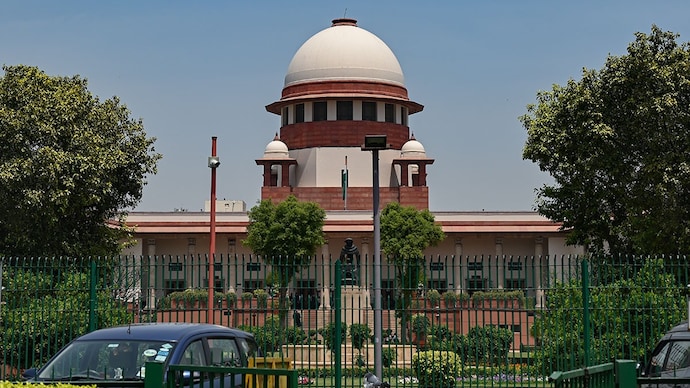The Supreme Court today, while hearing a challenge to the reversal of a decision to increase the number of allowed attempts for an examination to secure admission into Indian Institutes of Technology (IITs), granted relief to students who had dropped out of their college based on the promise of increased number of allowed attempts for Joint Entrance Examination – Advanced (JEE-Advanced).
The Court was hearing a Writ Petition filed by 22 students from 12 states, challenging the reduction of the number of allowed attempts for JEE-Advanced from three to two, reversing an earlier decision to increase them to three.
A two-judge Bench comprising Justice B.R. Gavai and Justice Augustine George Masih held, “In the press release dated November 5, a clear promise was made to the students that students who had appeared for 12th standard examination (2023-24-25) would be eligible for taking JEE (Advanced) examination. If the students acting on the said representation dropped from their course with an understanding that they would be entitled to appear for JEE (Mains) examination, the withdrawal of the promise on November 18 cannot be permitted to act to their detriment.”
The Court ordered, “In the peculiar facts of the case, without observing anything on the merits of the decision taken by the Respondent number 2 (Joint Admission Board), we clarify that such students who have dropped out between November 5 and November 18, 2024 would be permitted to register for JEE (Advanced). With the aforesaid, the petitions are disposed of”.
On November 5, 2024, the Joint Admission Board (JAB), which conducts the JEE-Advanced for admissions into IITs announced revised eligibility criteria, increasing the permissible attempts for JEE Advanced from two to three, effective from 2025 and permitted candidates who had passed Class XII in 2023, 2024, and 2025 to appear in the upcoming JEE-Advanced-2025.
13 days later, on November 18, JAB reversed its earlier decision, reinstating the two-attempt limit. The sole reason cited for the reversion was that it had “considered various competing requirements”, which remain undisclosed.
The Petitioners, represented by Senior Advocate K. Parameshwar and Advocates Rashmi Nandakumar and Anindita Mitra, submitted that certain Petitioners had withdrawn from the college allotted to them based on the November 5 communication allowing them an extra attempt. “People took irreversible decisions. They dropped out of college thinking they will get another attempt.”
The Petitioners contended that the principle of estoppel would apply in this situation, which the Bench recorded in its Order. “It is submitted that on account of the promise rendered in the press release dated November 5, 2024, the Petitioners had dropped out from colleges allotted to them so that they can pursue the test conducted… for IITs. It is therefore submitted that, now, the Respondents, by applying the principles of estoppel are estopped from ending the promise rendered to the Petitioners by press release dated November 5 inasmuch as the Petitioners have acted to their detriment”.
This is pure policy,” the Solicitor General of India Tushar Mehta submitted, adding that the November 18 reversing the earlier decision was taken in the interest of the students. “It is submitted that due to the enlarged period of consideration, the students would not concentrate on their studies and would only spend their time on preparing for the JEE (Advanced) test.” the Bench recorded his submission.
The Bench refused to comment on the merits of the original decision to increase the number of allowed attempts or the decision of reversal. “[W]e are not considering the wisdom of Respondent number 2 in restricting the zone of consideration either for two or three years. For valid reasons, if the Respondent number 2 has restricted the zone of consideration only to two years, no fault can be found with the same.”



